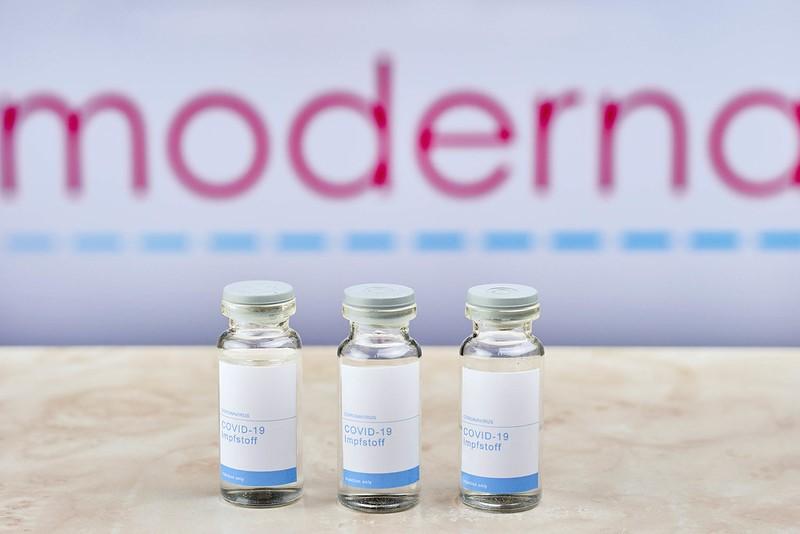The Food and Drug Administration (FDA) last night issued an emergency use authorization (EUA) for the Moderna COVID-19 vaccine, bringing a second vaccine to the United States' battle against the pandemic and making it the first country to have two authorized vaccines that come with clear and compelling efficacy data.
The formal announcement follows the Dec 17 recommendation of the FDA independent expert panel, the Vaccines and Related Biological Products Advisory Committee (VRBPAC). And it allows shipping to begin for use in people ages 18 and older. Federal officials have said they expect to ship 5.9 million Moderna doses to states next week.
In a statement, FDA Commissioner Stephen Hahn, MD, said, "With the availability of two vaccines now for the prevention of COVID-19, the FDA has taken another crucial step in the fight against this global pandemic that is causing vast numbers of hospitalizations and deaths in the United States each day." And he emphasized that expedited authorization for both vaccines adhered to rigorous standards for safety, efficacy, and manufacturing quality.
Potential allergy issues
At a briefing last night, FDA officials fielded questions about the newly authorized COVID-19 vaccines, including a few reports of allergic reactions in the United Kingdom and the United States in Pfizer-BioNTech vaccine recipients.
Peter Marks, MD, PhD, director of the FDA's Center for Biologics Evaluation and Research, said the reports show that safety monitoring systems are working as they should and that the FDA is working closely with the Centers for Disease Control and Prevention (CDC) and colleagues in the United Kingdom to explore the issues. He said that, out of an abundance of caution, the two vaccines have identical safety information in the prescribing information.
When asked about components that might trigger allergies, Marks said though it's dangerous to speculate, one possibility experts are considering is polyethylene glycol (PEG), which is a component of both vaccines. Allergies to PEG are thought be very rare, but perhaps they're not as rare as health officials think. He added that PEG is a common component of various pharmaceutical products, including bowel preps and laxatives.
For both vaccines, PEG is part of the lipid nanoparticle bubble that stabilize the mRNA molecules in the vaccine. PEG is also used as an anti-foaming agent in food and drinks and is the main ingredient in personal lubricants.
"We will have to use our good pharmacovigilance to see what's going on," he said.
Will it curb asymptomatic spread?
When asked if the Moderna vaccine vials are likely to contain extra doses, similar to the Pfizer-BioNTech vaccine, Marks said vials for any vaccine have some overage. However, he noted that the extra-dose situation might be different for the Moderna vaccine, because—unlike the first vaccine—it doesn't need to be reconstituted for a diluent.
When asked about early indications that the Moderna vaccine may curb asymptomatic transmission, Marks said the early data in the VRBPAC documents is intriguing and hopeful, "but we need more robust data to know for sure."
He said the National Institutes of Health is considering a randomized study that would involve swabbing to examine if there are any differences in virus carriage between vaccinated and placebo groups. He said one population that would offer a good setting for such a study is college students, who aren't eligible for vaccination in the near future. "This is a critical thing to get answered."
About 8 million doses to ship this week
At a media briefing this morning, Operation Warp Speed chief operating officer Gen. Gustave Perna said the distribution process for the Moderna vaccine has already begun. "Boxes are being packed and loaded today; trucks will begin rolling out tomorrow from Fed-Ex and UPS, delivering vaccines and kits to the American people across the United States."
Perna said a total of 7.9 million doses of the Moderna and Pfizer-BioNTech vaccines will be shipped this week. "Shipments will begin arriving Monday and will continue through the week," he said.
Later today, the CDC vaccine advisors will meet in an emergency session to discuss clinical and policy implications and vote on whether Americans should receive the vaccine. The CDC usually accepts the recommendations of its Advisory Committee on Immunization Practices. Once the CDC formally accepts ACIP's recommendations, immunization with Moderna's vaccine can begin.
In related developments, ACIP meets in another emergency session tomorrow to recommend the next priority groups to receive COVID-19 vaccines.
CIDRAP News reporter Chris Dall contributed to this story.






















